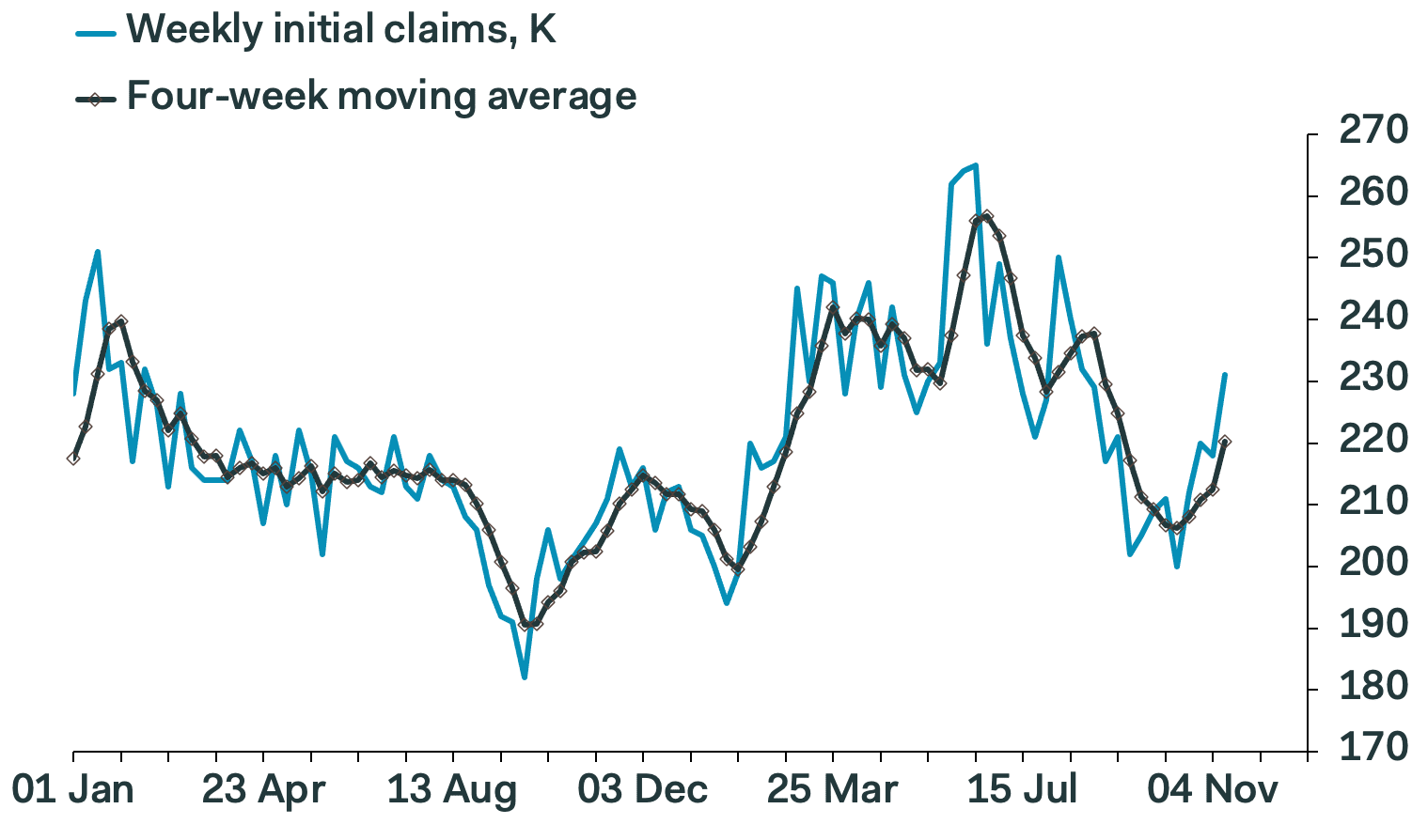GBP/USD Rate Regains 1.24 On News Layoffs Are Increasing
- Written by: Gary Howes

Image © Adobe Images
A broad-based decline in the Dollar has followed news that more Americans lost their jobs and sought out-of-work benefits than market participants were expecting.
The Pound to Dollar exchange rate has recovered above the 1.24 level after it was reported that weekly U.S. jobless claims rose 231K, more than the 220K the market was looking for, and up on the previous reading of 218K.
The figures suggest the U.S. labour market continues to weaken, underpinning expectations that the Federal Reserve won't raise interest rates again but will soon consider rate cuts.
"The jump in claims, to their highest level in 12 weeks, continues the rebound after the steep drop in late summer," says Ian Shepherdson, Chief Economist at Pantheon Macroeconomics.
GBP to USD Transfer Savings Calculator
How much are you sending from pounds to dollars?
Your potential USD savings on this GBP transfer:
$1,702
By using specialist providers vs high street banks
GBPUSD rose to a high of 1.2441 having been as low as 1.2376 earlier in the day, recoveries by the Euro (EURUSD 1.0880) and other currencies were also observed.
The Dollar fell sharply on Tuesday following news inflation fell further in October than had been anticipated and was now truly on course to meet the Federal Reserve's ambition of reaching 2.0%.
But for this trend to continue, U.S. wages and consumer demand must subside further, which is likely if the jobs market deteriorates. These jobless claims data suggest this trend is underway.
"It's easy to see why firms would be starting to increase layoffs," says Shepherdson.

Above: U.S. weekly claims, image courtesy of Pantheon Macroeconomics.
The economist says working capital is now much more expensive and harder to get, with small firms in the NFIB survey reporting that they paid an average of 9.1% on average for short-term loans in October.
"As gross margins come under pressure from softening demand, firms will seek to reduce labor costs in order to protect net earnings," adds Shepherdson.
Richard Franulovich, a foreign exchange strategist at Westpac Bank, says a meaningful USD retreat into year's end is at hand, underpinned by a cluster of data that speak to slowing growth momentum and a more entrenched disinflation trend.
"From here expectations could build into the mid-Dec FOMC for a more formal declaration that the tightening cycle is over," says Franulovich.
GBP to USD Transfer Savings Calculator
How much are you sending from pounds to dollars?
Your potential USD savings on this GBP transfer:
$1,702
By using specialist providers vs high street banks




